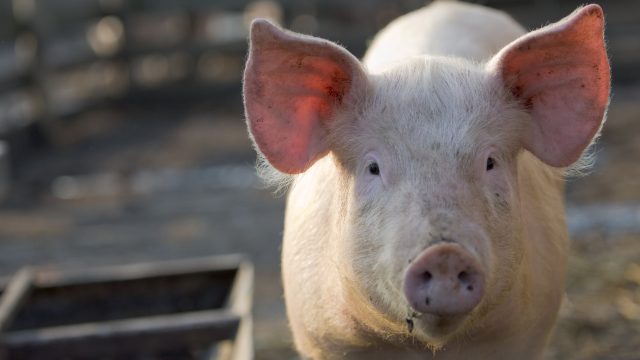Oregon’s Felony Animal Cruelty Law – The “Kittles Bill”
In 1995, the Animal Legal Defense Fund and animal advocates in Oregon made tremendous improvements in the state’s criminal anti-cruelty laws when they seized an opportunity presented by the confluence of two events:
- The Vikki Kittles animal cruelty case (1993-1995) exposed weaknesses in the state’s anti-cruelty laws that allowed Kittles to prevent her abused animals from going into foster care and even to prevent them from receiving life-saving medical treatment. At the outset of the Kittles hoarding case, ALDF attorney member Pamela Frasch offered pro bono legal assistance to Clatsop County District Attorney Joshua Marquis. They found that weaknesses in Oregon’s anti-cruelty law made the fight for justice an uphill battle in this case.
- State Representative Tim Josi was receiving pressure from his constituents who wanted a felony anti-cruelty law. Even the worst forms of aggravated animal abuse – torture or malicious killing – could only be charged as misdemeanors. Such cases would result in minor sentences and therefore would be low priority for prosecutors to pursue. Since misdemeanors are not tracked by the FBI, serial abusers could move to new jurisdictions with little chance that their prior offenses would be discovered by authorities.
To improve chances for justice and provide for more humane treatment of the animals in future cases, Ms. Frasch drafted a bill, nicknamed the “Kittles Bill,” aimed at making important improvements in Oregon’s anti-cruelty statutes. She did extensive research into current Oregon law, disparate penalties, case law involving felonies in the state, and felony anti-cruelty laws in other states – at the time only 12 states had felony provisions in their anti-cruelty laws. The bill was introduced in the Oregon House as HB 3377, sponsored by Representative Josi, with the following provisions:
- Elevates aggravated animal abuse (malicious killing or intentional torturing) from a misdemeanor to a felony
- Prevents unnecessary pain and suffering by allowing immediate and ongoing veterinary care for the impounded animals, and expedites placement into foster homes
- Allows peace officers to enter private property without a search warrant to care for animals in need of water, food or emergency medical treatment
Supported by Ms. Frasch of ALDF, Sharon Harmon of the Oregon Humane Society, District Attorney Joshua Marquis, former U.S. Attorney and Circuit Court Judge Charles Turner, Representative Tim Josi, other legislators from both parties, and many grassroots activists from around the state, the bill survived several politically-motivated attempts to kill it. Ultimately, HB 3377 was passed and signed by the Governor and became effective in September 1995.
During that same session, ALDF also provided legal research assistance for a separate bill – SB 653 – that would allow a court to order the forfeiture of abused animals prior to the disposition of the criminal case. The bill was drafted by Rob Bovett, a lawyer who at the time was working for Lincoln County, and who has since been elected as their District Attorney. That bill was also passed into law.
The supporters of these bills demonstrated a concerted effort and relentless persistence to succeed in moving the bills from drafting to passage in a six-month time frame.
District Attorney Joshua Marquis estimated that if HB 3377 had been in effect in 1993, it would have saved the taxpayers 75% of the $100,000-plus price tag in the Kittles case. He described the 1995 Oregon law as the toughest animal cruelty law in the United States at the time of its passage. Many other states would soon follow, turning to ALDF’s legal experts and the new Oregon law for guidance in improving their laws. Fourteen years later, 46 states, the District of Columbia, Puerto Rico and the Virgin Islands all have felony provisions in their anti-cruelty laws.Focus Area
How We Work
Related
-
Court Rules Texas Food Label Censorship Law is Unconstitutional
The law imposed unclear and vague standards on plant-based meat producers that violate the First AmendmentJanuary 29, 2026 Press Release -
State Animal Protection Laws Ranked: Oregon is #1, North Dakota #50
20th edition of ALDF state and territory ranking report highlights major advancements & trends in animal protection across the U.S.January 27, 2026 News -
Over 30 Organizations Urge USDA to Limit Federal Support for Manure Digesters
Hundreds of millions of dollars intended to cut energy costs have been funneled to costly manure digesters, benefitting the largest factory farmsJanuary 15, 2026 News



